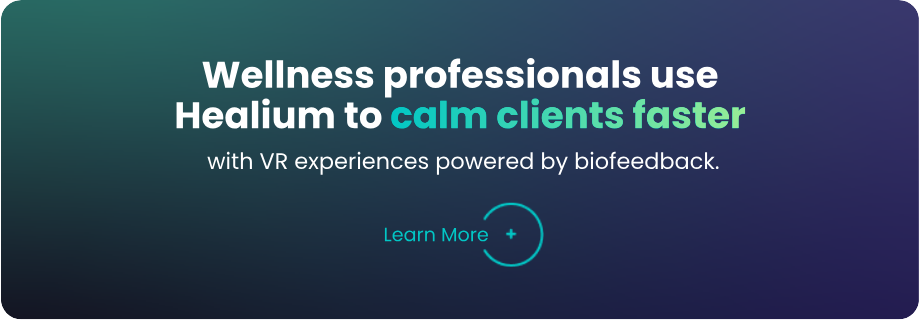Learn how to regulate the nervous system with practical tips and biofeedback meditation
Identifying Dysregulation in the Nervous System
A dysregulated nervous system may manifest as persistent fatigue, difficulty concentrating, anxiety, panic attacks, or even muscle pain. It’s important to be aware of these signs as they can indicate a deeper imbalance.
Factors contributing to nervous system imbalance include chronic stress, traumatic events, poor sleep habits, and unhealthy diets.
7 Ways to Regulate Your Nervous System
ANS Breathing Techniques
Breathing exercises are a cornerstone for calming the nervous system. The “physiological sigh,” a technique advocated by neuroscientists, involves taking two short, sharp inhales through the nose to fully inflate the lungs, followed by a long, slow exhale through the mouth. This method helps reset the autonomic nervous system, reducing the immediate feeling of stress.
For deeper relaxation, engage in diaphragmatic breathing daily: sit comfortably, place one hand on your belly, breathe deeply into your diaphragm for a count of four, hold for four, and exhale slowly for eight.
Physical Activity for Stress Reduction
Integrating regular physical activity into your routine can dramatically lower stress hormone levels and enhance autonomic nervous system (ANS) regulation.
Tailor your exercise to match your fitness level and interests: this could range from gentle yoga sessions, which focus on breath and movement, to brisk walking in nature. Aim for at least 30 minutes of moderate exercise most days. Physical activity not only boosts your mood but also improves sleep and cognitive function.
Mindfulness and Meditation
Mindfulness and meditation offer profound benefits for calming the mind and rebalancing the nervous system. Start with guided meditation sessions, focusing on your breath and bodily sensations, for 10 minutes daily.
Gradually increase the duration as you become more comfortable with the practice. Incorporate mindfulness into daily activities, such as eating or walking, by fully engaging your senses and being present in the moment. This practice reduces stress and enhances emotional regulation.
Nature and Grounding Techniques
Spending time in natural settings and employing grounding techniques can significantly rebalance your autonomic nervous system. Aim for regular “green time” by walking in a park, forest bathing, or gardening for at least 20 minutes daily.
Ground yourself by walking barefoot on grass or sand, focusing on the connection between your feet and the Earth. These activities reduce cortisol levels and promote a sense of wellbeing.
Optimized Diet and Nutrition
A diet rich in nutrients supports nervous system health. Focus on incorporating foods high in omega-3 fatty acids (such as salmon, flaxseeds, and walnuts), magnesium (found in leafy greens, nuts, and seeds), and B vitamins (present in whole grains, eggs, and dairy). These nutrients play a key role in reducing inflammation and supporting neurotransmitter function.
Sleep Hygiene
Quality sleep is crucial for autonomic nervous system function. Establish a consistent sleep schedule by going to bed and waking up at the same time every day, even on weekends.
Create a calming bedtime routine by reducing screen time an hour before bed, practicing relaxation techniques, or reading. Make your sleep environment conducive to rest by keeping it cool, dark, and quiet. These practices enhance sleep quality, which is vital for nervous system regulation.
Social Connections and Co-regulation
Healthy social connections and co-regulation are fundamental for nervous system health. Engage in regular, meaningful interactions with friends and family, whether in person or virtually.
Practice active listening and empathy in conversations, which foster deeper connections and mutual emotional support. Participate in group activities or hobbies that bring you joy and a sense of community. These interactions help regulate emotions and stress, contributing to a healthier autonomic nervous system.
How Healium Helps You Self-Regulate Your Nervous System
Healium helps insert mindfulness meditation into your daily routine in an exciting new way that uses your own brainwaves within the meditation session so that you can begin to self-regulate patterns associated with stress.
This biofeedback data acts as your compass, providing you a way in which to understand how your brain is wired. This is the first step to driving meaningful change.
Our app has been proven to reduce anxiety in as little as four minutes.

 The ANS is a part of the nervous system that controls many of the involuntary functions of our body. While you’re reading this, your ANS is regulating your heartbeat, managing your digestion, and even adjusting your pupil size.
The ANS is a part of the nervous system that controls many of the involuntary functions of our body. While you’re reading this, your ANS is regulating your heartbeat, managing your digestion, and even adjusting your pupil size.








